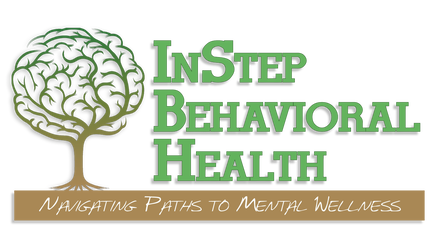Do I have ADHD?
10/01/2020
I'm always forgetting things. I make my friends and family annoyed by being late all the time. I have trouble focusing even on the things I like to do.
Do I have ADHD?
Change begins with understanding. There are many reasons why we can experience forgetfulness, have trouble with impulse control, or have trouble getting started with tasks. It could be life changes, stress, ADHD or underdeveloped executive functioning or coping skills.
Getting the answers to "why" can lead us to understand "how" to change the behaviors and choices that give you trouble in your life, your relationships, and within yourself.
The first step is to get a thorough evaluation. At ISBH, we value a "biopsychosocial" model of care. that means we look at all aspects of a person's life and consider past history and present needs.
Here are a few resources to check out:
Center for Disease Control and Prevention. Data and Statistics about ADHD. Retrieved August 19th, 2020 from https://www.cdc.gov/ncbddd/adhd/data.html
Dawson, Peg & Guare, Richard First initial. (2009). Smart but Scattered: The Revolutionary “Executive Skills” Approach to Helping Adolescents Reach Their Potential. New York: Guildford Press.
https://www.understood.org/en/learning-thinking-differences/child-learning-disabilities/add-adhd/adhd-and-the-myth-of-laziness-what-you-need-to-know
Dr. Vinita Menon, PhD LCP NCSP is a clinical and school psychologist. She promotes a growth mindset in her clients and has expertise in diagnosing and treating mood disorders, ADHD and autism for children, adolescents, and adults.
I'm always forgetting things. I make my friends and family annoyed by being late all the time. I have trouble focusing even on the things I like to do.
Do I have ADHD?
Change begins with understanding. There are many reasons why we can experience forgetfulness, have trouble with impulse control, or have trouble getting started with tasks. It could be life changes, stress, ADHD or underdeveloped executive functioning or coping skills.
Getting the answers to "why" can lead us to understand "how" to change the behaviors and choices that give you trouble in your life, your relationships, and within yourself.
The first step is to get a thorough evaluation. At ISBH, we value a "biopsychosocial" model of care. that means we look at all aspects of a person's life and consider past history and present needs.
Here are a few resources to check out:
Center for Disease Control and Prevention. Data and Statistics about ADHD. Retrieved August 19th, 2020 from https://www.cdc.gov/ncbddd/adhd/data.html
Dawson, Peg & Guare, Richard First initial. (2009). Smart but Scattered: The Revolutionary “Executive Skills” Approach to Helping Adolescents Reach Their Potential. New York: Guildford Press.
https://www.understood.org/en/learning-thinking-differences/child-learning-disabilities/add-adhd/adhd-and-the-myth-of-laziness-what-you-need-to-know
Dr. Vinita Menon, PhD LCP NCSP is a clinical and school psychologist. She promotes a growth mindset in her clients and has expertise in diagnosing and treating mood disorders, ADHD and autism for children, adolescents, and adults.
